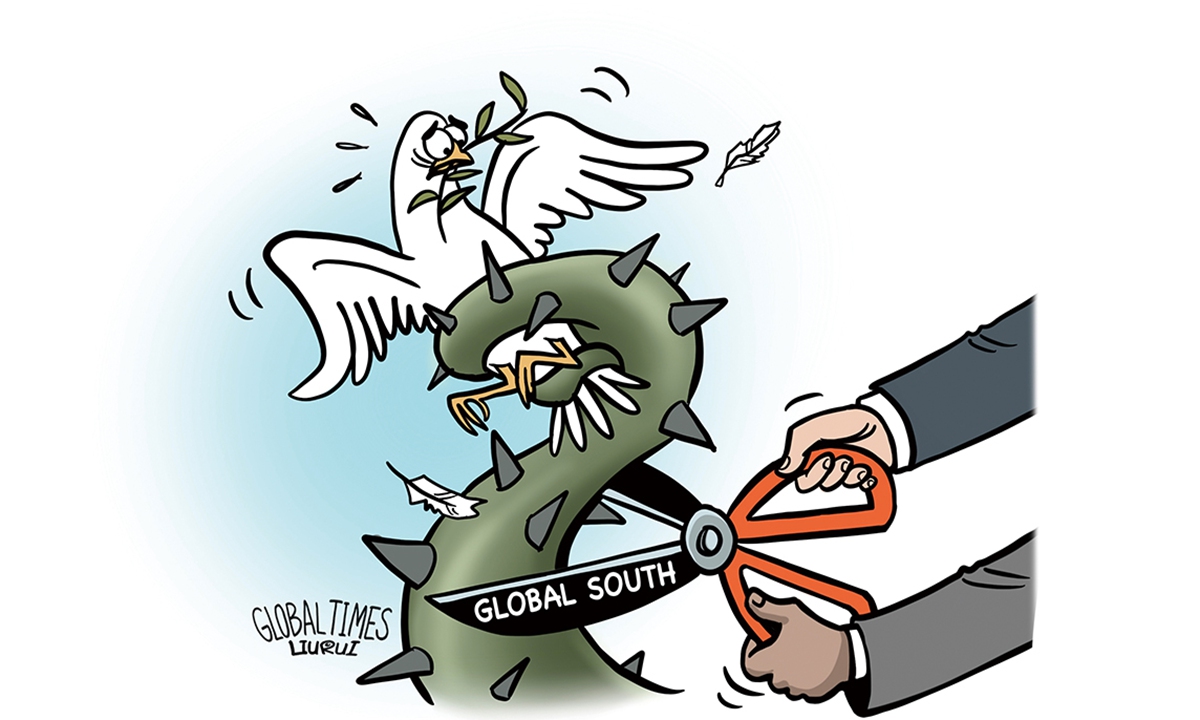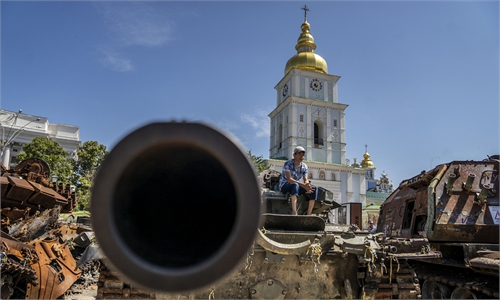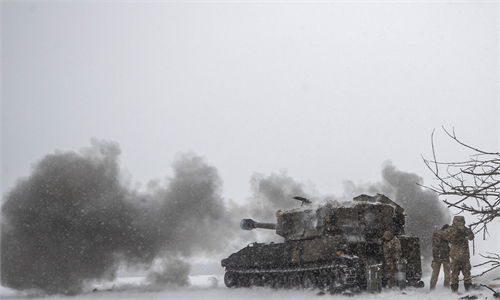
Illustration: Liu Rui/GT
The war in Ukraine, which has been prolonged for more than a year, has triggered an accelerated transformation of the international landscape. One of the prominent changes is the rise of the Global South and its increasingly important role in the international system. Developing countries have gained room to maneuver in the game of big powers, and their political influence has risen rapidly. The Global South has maintained its diplomatic independence and strategic autonomy against the backdrop of the Ukraine crisis and has taken a middle path to accelerate its rise as an emerging force in global politics.
Saudi Arabia is a part of such a trend. On Saturday and Sunday, Saudi Arabia is set to host a multinational peace summit aiming at ending the war in Ukraine. This is a symbol of Saudi Arabia's emergence as a new "player" on the international stage, as the Middle East nation seeks to play an important mediator role in major events, including the conflicts in Ukraine and Sudan.
After the outbreak of the war, many countries of the Global South did not take sides or succumb to US' pressure to join the camp of condemning and sanctioning Russia. This marks the beginning of the Global South breaking away from the control of the big powers, repositioning its international status and role, and seeking strategic self-confidence and autonomy. The perception and actions of the Global South on the Ukraine crisis include the following points.
First, they have taken a neutral position on the Ukraine issue. The Global South countries generally believe the war in Ukraine is on the surface a conflict between Russia and Ukraine, but in reality, it's a strategic confrontation between Russia on one side and the US and the West on the other. As the core force of the Global South, the BRICS countries have made their judgment independently on the basis of the history and the merits of the issue, maintaining a neutral and balanced position between the two sides of the conflict as well as the US and Russia.
Second, they play the role of a mediator. The Global South countries generally believe that the Ukraine issue cannot be resolved on the battlefield and advocate its resolution through political and diplomatic means. For some time now, developing countries have been the main characters in the diplomatic arena in dealing with the Ukraine crisis. China, African countries, Saudi Arabia, Brazil, Turkey and other countries have been making efforts to promote peace talks. The diplomatic efforts of the Global South have demonstrated the strength of the forces of peace.
Third, they firmly defend their own interests. Developing countries are innocent victims of the conflict between Russia and Ukraine, and the unilateral sanctions imposed on Russia by the US and the West have caused serious economic disaster. As a result, many developing countries are facing risks to their energy and food security and a sharp deterioration in the development environment. The Ukraine crisis has intensified the conflict of interests between the countries of the Global South and the US and the West, and it is impossible for them to join the sanctions against Russia because that will be against their own interests. Therefore, they seek a solution to the Ukraine crisis that is different from that of the US and the West.
The rise of the Global South reflects the trend of the shift from West to East in the balance of power in today's world. Developing countries are no longer marginalized from the international community, dependent on the big powers, and at the mercy of others, but have emerged as a significant force on the international stage. These countries' economic volume, diplomatic dynamism, and international discourse have seen drastic changes, and their positions and views are no longer irrelevant. Their rising economic power and political influence have given them strategic confidence and prompted them to show more strategic autonomy.
Developing countries' active participation in international affairs is of great significance in promoting the construction of a multipolar world and the development of multilateralism. This can not only accumulate positive energy for peace negotiation, but also exert more political and diplomatic pressure on the US and the West, so that the latter will not be able to implement unilateralism and maintain unipolar hegemony.
Focusing on economic development, maintaining independence and autonomy, and promoting solidarity have become a consensus of developing countries. The rise of the Global South, as the most prominent transformational trend in the international system after the Ukraine crisis, will promote the construction of a just and reasonable international order.
The author is a professor at the Middle East Studies Institute of Shanghai International Studies University. opinion@globaltimes.com.cn


